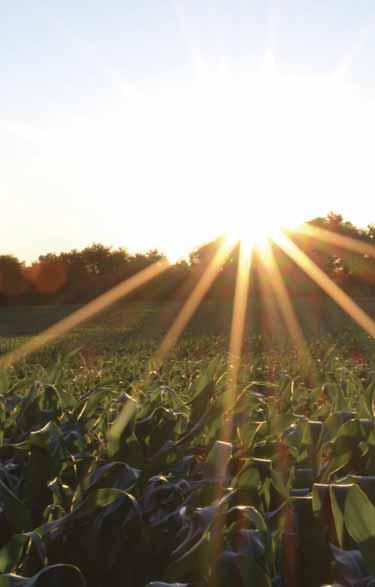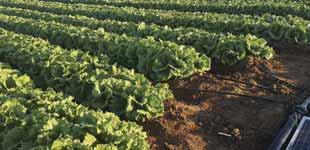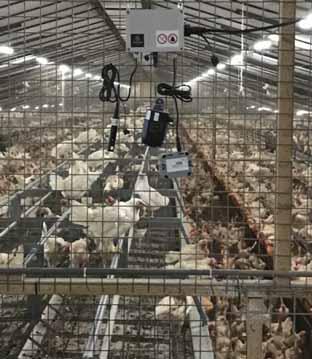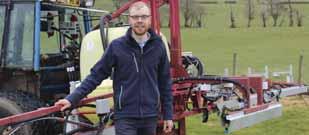
4 minute read
Profession
Agri‐EPI Awards
Innovative approaches at home and away
Advertisement
The Agri-EPI Centre has launched and run the inaugural Agri Excellence Awards. These Awards recognise the ground-breaking work of agri-tech companies that have had significant impact on sustainable productivity on-farm, in the UK and internationally, between January 2019 and January 2021. The IAgrE’s CEO Charlie Nicklin was part of the judging panel.
“Its great to see the diversity of the sector we’re in and the clever engineering technology being applied.” Charlie Nicklin IAgrE CEO

International winner
ALVATECH’s chemical‐free water treatment can prevent farmland from being lost to salination, while expanding the amount of water that can be used in food production. The urgency of the situation is exemplified by the fact that some 5,000 acres of farmland has been lost to salination every day since the 1990s, while global water demand is expected to double by 2050. The system uses solar power to disrupt the molecular behaviour of water, breaking down the salt particles without the use of chemicals or the creation of harmful by‐products.
The technology enables farmers to irrigate crops with saline, brackish and hard water.

In this way it helps conserve water supplies and enable soils, that might be deteriorating due to salination, to be returned to sustainable production.
Treated water is proven to improve both yield and quality as well as to reduce crop need for fertilisers.

Profession:
Agri EPI awards
International runner up
International runner up
WICOW, from muTech‐Gmbh, alerts farmers and vets about the onset of key health events in a cow’s life.
The device is effectively a complete and constant health monitoring system that fits inside the cow’s vagina.
It compiles a continuous record of the cow’s health status and sends alerts to the farmer and/or vet.
As a result they are quickly alerted to the onset of heat, and 24 hours before the onset of calving.
It will also activate if it detects the onset of temperature or fever, allowing it to be treated swiftly and – usually – with less need for medicines or veterinary involvement.
The company says this effectively eliminates the ’silent spots’ that might otherwise occur at critical stages of the cow’s life‐cycle.
This means any treatment required can be applied quickly and effectively, and often involving less serious intervention than might be required if the problem had not been detected so swiftly. In the long term, it suggests that the cumulative effect will be a healthier, longer and more productive life for the cow from a system that also saves time and money. UK Winner
The UK winner Pruex uses intelligent monitors and air sensors spread around poultry barns to monitor conditions.
The company was started five years ago by Aled Davies after he completed a Nuffield Scholarship examining alternatives to antibiotic use in agriculture.
During his studies he realised that many livestock suffered low level bacterial infections which – while not actually making them sick – reduced their health and productivity.
And he also realised that this problem was endemic to housed livestock, with faecal bacteria affecting the air their air, water and feed.
His company tests the living environment of livestock, including bedding.
It then distributes non‐infective bacteria ‐ similar to cultures of soil bacteria – to help dry up the litter and reduce production of harmful gases including ammonia.
This helps ensure a healthier living environment for birds and healthier, safer working conditions for farm staff.
Charlie’s comments:
IAgrE was pleased to be represented on the judging panel for the recent Agri‐EPI Agri‐Tech Excellence Awards. For the International category, the winner and runner up’s innovations showed real technological advancement that would benefit the farmer.
The winning entry from Alvatech was a cost‐effective solar powered system that reduced salinity in irrigation water. The self‐contained system could be installed into irrigation lines protecting the soil from excessive salinity as well as dramatically improving plant health and productivity.
WiCow, the runner up’s technology, focussed on telemetry. With its innovative intravaginal reusable sensor, installed into a cow before calving, allowing real‐time health monitoring and calving prediction via a smart phone app.
It’s great to see the diversity of the sector we’re in and the clever engineering technology being applied.
It also avoids using some alternative products to combat such infections, many of which are becoming more tightly regulated due to side effects.
UK‐runner up
Oxi‐tech Solutions uses patented technology to create a powerful industrial disinfectant from water, ozone and low voltage electricity.
This helps ensure dairy parlours are cleaned more efficiently, with its products completely replacing peracetic acid for cluster flushing and all the sodium hypochloride used in the CIP wash.
It says that it reduces the amount of chemicals used for these tasks –and all the attendant pollution and waste.
It also avoids a range of other risks, including manual handling, acid burns and fire risks, and parlour parts last much longer with less frequent replacement.

UK‐runner up
Receiving what was effectively the UK bronze medal was Taylor Technologies, whose invention met the demands of one particular local farmer.
In 2018 that farmer wanted to spray docks without harming valuable clover around them with blanket applications of herbicides.

Taylor built a system combining cameras, computers, special software and precision spray nozzle control to ‘spot treat’ weeds. The system can be ‘trained’ to recognize weed species, differentiating between them and other vegetation. So it controls weeds while leaving surrounding grass and clover unaffected.
Trials completed this spring (in less‐than‐ideal conditions) in a sward containing 18% docks destroyed 80% of them with the first treatment.
UK‐runner up ‐ Oxi‐tech Solutions










